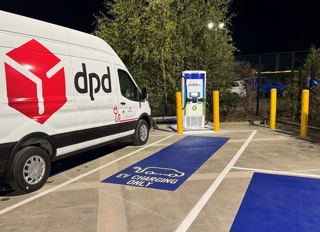By Daniel Kunkel, CEO at Gridserve
As I reflect on Gridserve's journey and the broader evolution of the electric vehicle charging industry, I'm struck by how far we’ve come and how much further we're poised to go.
When we first began building our charging infrastructure, the landscape was vastly different. Public charging points were scarce and charging anxiety was a genuine barrier to EV adoption.
As an industry, we are now deploying one charge point every 29 minutes across the UK and this is just the beginning.
In such a rapidly evolving industry, what could be ahead and how much will new technologies shape that future?
We’ve always believed that the future of sustainable transport depends not just on fast, reliable charging infrastructure, but on intelligent systems that can anticipate and respond to customer needs in real time. Artificial intelligence represents the next evolutionary leap in our industry.
The strategic value of AI in our sector centres on operational efficiency but extends far beyond cost savings.
We're talking about creating an entirely new model where charging infrastructure becomes proactive rather than reactive, personalised rather than generic and seamlessly integrated into the broader energy ecosystem.
Dynamic route optimisation and queue management
The days of static route planning are already numbered but the processing power of AI systems could also look to take into account weather patterns and others on route to your location to optimise beyond battery levels, traffic and destination.
For fleets, these small improvements could mean better optimisation and less downtime.
Looking ahead, intelligent queue management systems could increase utilisation whilst improving customer experience at our busiest locations.
By analysing charging patterns, session durations and arrival predictions, AI could dynamically allocate charging bays and reduce wait times.
This isn’t just about convenience – it’s about maximising utilisation of our infrastructure investments and ensuring every customer has a value-driven experience.
The future of customer experience lies in personalisation, and AI could give us the tools to deliver this at unprecedented scale.
Imagine systems that learn individual charging behaviours, preferred locations and speeds along with usage patterns to create tailored experiences for each customer.
We're not just building charging stations; we're exploring how chargers can be intelligent energy partners that could understand and anticipate customer needs.
Economic intelligence and grid integration
Energy markets are becoming increasingly volatile. In the future, AI-driven dynamic energy management systems could analyse energy availability and costs, demand patterns and grid conditions to offer optimal pricing in real time.
This would support sustainable business models that give strong returns for the massive infrastructure investments required for widespread EV adoption while being flexible to pass additional value to customers when possible.
AI could enable CPOs to play a greater role in grid stability and renewable energy integration.
By intelligently managing when and how vehicles charge based on grid conditions, renewable energy availability and demand forecasting, we could help to accelerate the transition to clean energy while supporting grid reliability.
Operational excellence through predictive intelligence
Nothing undermines customer confidence like unreliable charging infrastructure. We are already monitoring the network 24/7 to ensure we maximise availability, we also analyse trends and service chargers proactively to avoid downtime.
This predictive maintenance approach not only reduces downtime but optimises our operational costs and ensures consistent service quality.
AI systems could bring additional efficiency to this process continuously monitoring the performance of every charging point in our network, analysing thousands of data points to predict potential failures before they occur.
AI can also strengthen our strategic decisions about where and how to expand our charging network.
By analysing more complex traffic patterns, demographic data, existing infrastructure and more accurately predicting EV adoption rates, we can optimise our data-driven decisions about new locations that maximise both customer utility and business returns.
The vision: seamless, intelligent, sustainable
The ultimate vision is an intelligent charging ecosystem where the complexity of energy management, grid integration and service delivery become invisible to the customer.
This future isn't decades away. The foundational technologies exist today. The question isn’t whether AI will transform EV charging, but how quickly we can deploy these technologies at scale.
The future of mobility is electric, intelligent, and sustainable.






















Login to comment
Comments
No comments have been made yet.